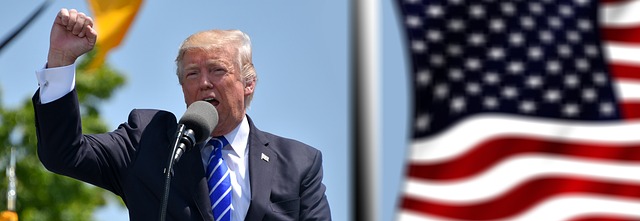Industry experts offer their opinions.

The White House is about to turn red after Republican nominee Donald Trump won the 2024 presidential election.
Even while the race was hotly contested in the weeks before the election, Trump ultimately won handily in crucial swing states including Wisconsin, Georgia, and Pennsylvania. Contrary to conventional wisdom, which holds that Republicans control larger, less populated rural areas and Democrats control smaller urban counties, Trump made noteworthy gains in major cities, garnering a sizable following in urban areas like Miami, New York, and Chicago.
In order to assess the possible effects of Trump’s reelection, Insurance Business spoke with industry professionals following election night. These experts provided perspectives on how Trump’s proposals can alter the insurance market in the upcoming years, covering everything from tax reforms to inflation control to regulatory changes.
Inflation control and business growth
Portal Insurance founder Bradley Flowers emphasised how Trump’s economic policies could slash insurers’ operating and claims-related expenses, while projected tax cuts might increase demand for business insurance.
“The insurance industry could be greatly impacted by a Trump administration that is dedicated to lowering inflation, as lower inflation would reduce the costs associated with claims and general operations,” said Flowers.
He went on to say that prospective business-friendly tax cuts might encourage more entrepreneurship and raise demand for business insurance. He continued, “We may also see lower interest rates if Trump’s economic policies resemble those of 2016, which could reshape insurance carriers’ financial strategies and encourage greater risk-taking.”
Navigating globalization and protectionism
Although some business executives are hopeful about possible economic expansion under Trump, others are wary of the consequences of his “America First” policy. A globalised insurance industry is essential for stability, according to Richard Look, president and chief strategist at insurance marketing company Vertibrands.
“The insurance sector is a worldwide business. Insurance companies benefit from increased internationalisation since it enables them to spread risk over a wide range of sectors and regions.
Be advised that the insurance market may see unforeseen repercussions from Trump’s preference for domestic manufacture, especially with regard to supply chain dynamics and material availability.
He clarified that “Trump’s push for local manufacturing could drive up insurance rates.” “US suppliers may charge more than their foreign counterparts when claims are made and materials are required.”
In spite of these worries, Look pointed out that supply chain problems have mostly subsided since the pandemic’s peak, which might help balance future price rises.
Relief from regulations and stability for autonomous agencies
Big I (Independent Insurance Agents and Brokers of America) senior vice president of federal government affairs Nathan Riedel described how a Trump administration may provide independent agencies with regulatory relief, which could lessen their operating expenses.
According to Riedel, “a second Trump White House should be relatively good for the insurance industry judging by his first term in office.” This is because Trump has a history of being pro-business and is expected to continue enforcing less stringent regulations than the Biden administration.
Many of the provisions in the 2017 Tax Cuts and Jobs Act, such as the 20% small business deduction for pass-through entities, have been expressed by the president-elect as being permanent. For independent insurance companies, of which 86% are set up in this manner, this is crucial, he stated. Riedel said that this action would give agencies much-needed respite and create a more conducive atmosphere for company expansion.
Flowers also emphasised how a Trump administration’s reduced interest rates may encourage investment and innovation in the insurance industry. “As an agency owner and investor in seed-stage insurtechs, I’ve seen a sharp decline in fundraising and investor interest compared to 2017-2020,” he stated. “A Trump-led economy could help reverse this trend, encouraging more innovation and growth in the industry.”



